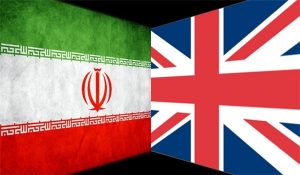“Churchillian” Foreign Policy Since 1945: Imperial Establishment’s Ideological Adjustments to Managing British Power, and Interests in Post Colonial Britain.
The Commonwealth Development Corporation and the British equivalent for the Commonwealth of the Marshal Plan – the Colombo Plan – was mainly based upon shrewd economic considerations being targeted at retaining Britain’s trading and financial role in the ex-colonies and consequently safeguarding British economic and political positions, as a world power. The gradual conversion of the Empire into the Commonwealth led finally to the Modern Commonwealth “club”, which was the 1945-51 Labour Government’s major political adjustment and achievement. This was due to the fact that, although being a socialist and anti-colonial party, nevertheless the Labour Government strongly believed that Britain’s position as a world power must be maintained, and therefore they also managed to harmonise their socialism with the Conservatives who were traditionally and conspicuously the strong supporter of the British Empire and its expansion. This was because Labour’s approach to maintaining and protecting of British interests in the period of being in office, 1945-51, had been shared by those Conservatives who were well liked and respected by their own party and who were also close to Churchill. Before the end of World War Two, Stanley, the Colonial Secretary, a close friend of Churchill who had even been spoken of as a future Chancellor, and Andrew Cohen, the Governor of Uganda, had been speaking positively of the policy that Labour eventually adopted during 1945-51 to protect British interests, which was virtually completed by Macmillan when he left office in 1963.
Consequently the imperial sentiments of the Conservatives had become integrated with Labour’s colonial doctrine of trusteeship. The Labour Government and in particular Bevin in 1946 expressed the view strongly that the ending of the British Empire could lead to a rapid falling of the standard of life in Britain and her colonies, and thus he said he was not ready to let the British Empire simply disappear. As a result of the way that the decolonisation process was handled and channelled into the establishment of the Modern Commonwealth, in which the Colombo Plan was a major element, Britain won the support from the ex-colonies. Thus the influence of Communism was blunted and the other Western countries were deterred from marching in order to take an economic stake in the ex-colonies. Since World War Two, it could also be said that giving of aid has become part of international diplomacy, an approach begun in the decolonisation process.
Among both the imperialists and anti-imperialists the colonial development policy was uncontroversial, as it contained assistance to the developing countries and at the same time the economic interests of Britain were defended. As they were generally in harmony with what the Labour Government of 1945-51 had done in respect of the decolonisation process, the Conservative leaders of 1951-63 similarly had very little disagreement with the strategies of their predecessors in regard to safeguarding British interests in the new reality of the ending of Empire and the circumstances surrounding it.
Therefore, the Colombo Plan safeguarded a system of tariff preferences and the functioning of the sterling area. Notably they were bilateral agreements for mutual tariff concessions between various Commonwealth nations. This meant that the principles of Imperial Preference (the Ottawa Agreement of 1932 which was a series of bilateral agreements among the Commonwealth countries for mutual tariff concessions and maintaining of the sterling area) was protected. Consequently, the aspirations of traditional Conservatives, and “the Establishment” generally, as the prime beneficiaries of the Empire, for maintaining British economic interests was protected. In addition, the interests specifically of the political elite in maintaining Britain’s world role and influence was furthered by their own skill in successfully managing the transition to the Modern Commonwealth in the period 1945-63.



